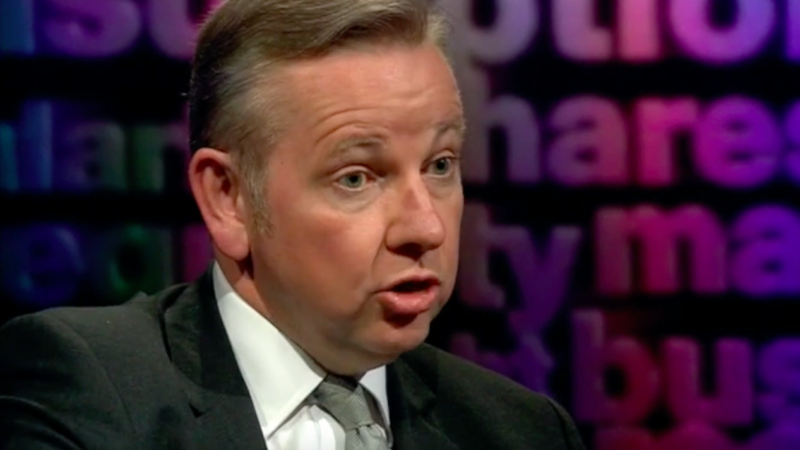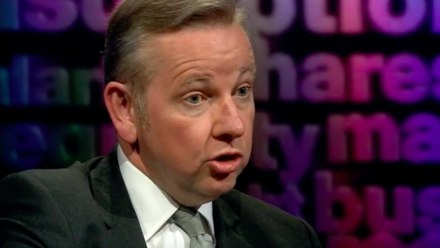

In March, Michel Barnier told me he had offered Britain a two year transition period after April 2019 in which we could trade freely without tariffs or duties provided London accepted existing EU rules and laws on social protection, environmental obligation and rights of EU citizens.
If he told me this and I could put it in a book published a few months later I assumed it was no secret and British ministers had been made this offer.
But it was not until Michael Gove returned to the cabinet after the June election that the UK’s ruling party began to understand what was at stake.
In the preceding 12 months, the Brexit hardliners headed by Boris Johnson and David Davis continued using the shop-worn clichés and denunciations of the Brexit camp.
Britain didn’t owe a penny and the EU could “go whistle.” The European Court of Justice was a dreadful foreign body and should have no role. David Davis regularly insulted Michel Barnier. The official Tory blow-hard line was the EU was out to punish Britain.
Theresa May, who never seemed to be on top of events, was heading for a No Deal crash possibly even before the end of talks on the three pre-conditions agreed between Brussels and London – namely the money owed, Northern Ireland and a role for the European Court of Justice protecting the rights of EU citizens in Britain.
This would have precipitated a major global economic crisis as every foreign and export-dependent firm, especially the hundreds of banks and finance in the City, would have faced a choice of quitting Britain.
The Tories are the party of business or they are nothing. Such a crisis would have led to a major rethink about the wisdom of following the Brexit trajectory of a full amputation with Europe.
Gove, who is a major strategic thinker, closely linked with the US neo-conservative and neo-liberal right, realised the folly of the Brexit hardliners in the cabinet being held responsible for such a economic-political disaster.
He knew that Labour was waiting for precisely such a crisis and economic-political meltdown to move out of its studied ambiguity on Brexit and could begin speaking for British economic interests with conviction and support.
Gove’s supreme objective, in line with the thinking of Anglosphere ideologues who want a US-Britain neo-liberal axis, is to cut the umbilical cord with the rest of Europe where a very different project based on social and environmental policies and liberal values on gay people and capital punishment is sinking deep roots.
What Gove feared and fears is any major rethink of the referendum outcome in line with what happened in Switzerland where a referendum to ban immigration from the rest of Europe was passed in February 2014. It was then quietly binned by Swiss MPs by the end of 2016 after Brussels made clear that if the Swiss began discriminating against EU citizens then their existing access to EU markets would face reciprocal response.
The idea of a new referendum was dismissed when advanced earlier in the year. Last Sunday a major Survation poll showed a 50-34 support for a new referendum. The Gove nightmare is that the people might be allowed a second thought on Brexit now that more and more facts are emerging of what the costs entail.
That is why bit by bit in late autumn the Tory Brexiters changed their tune and calmed down. Their parish magazine, the Spectator, started arguing that paying a £50bn exit bill was perfectly reasonable. Chris Grayling, a long time anti-European, announced he was happy to accept ECJ jurisdiction in order to keep Britain within the European Aviation Safety Agency and thus ensure no threat to flights between here and Europe.
European immigrants who had been treated as unwanted in order to win the Brexit vote were described in warm words by Gove.
For Gove, who has now emerged as the major Brexit strategist in the cabinet, it is vital that Britain is fully out of the EU Treaty by April 2019. He and May will accept most of the conditions Barnier will lay down during 2018. Britain will accept a future status like that of Norway for two years after 2019 – accepting all Single Market and Customs Union rules.
The question is what happens in the two years after April 2019 and after the end of the Norwegian style transition in 2021. Britain will be buried in eternal Brexit negoitations covering every sector from farming to financial sevices to exports of TV series. Brexit will continue to drain all the juices from British politics leading up to the next election in 2021 or 2022.
So Gove’s strategy just continues the Brexit agony well beyond 2019 into the next decade. Will that help the Tory Party or will the call for a new referendum emerge as a Labour demand that can help take the party to power possibly in coalition with other parties that oppose Brexit?
Whatever happens Brexit is going to squat like a giant toad on British politics for years and year to come.
Denis MacShane is a former Europe minister and author of Brexit, No Exit. Why (in the End) Britain Won’t Leave Europe (IB Tauris)




More from LabourList
SPONSORED: ‘Industrial hemp and the challenge of turning Labour’s priorities into practice’
‘A day is a long time in politics, so we need ‘action this day’’
Strong support for child social media ban among Labour members, poll reveals